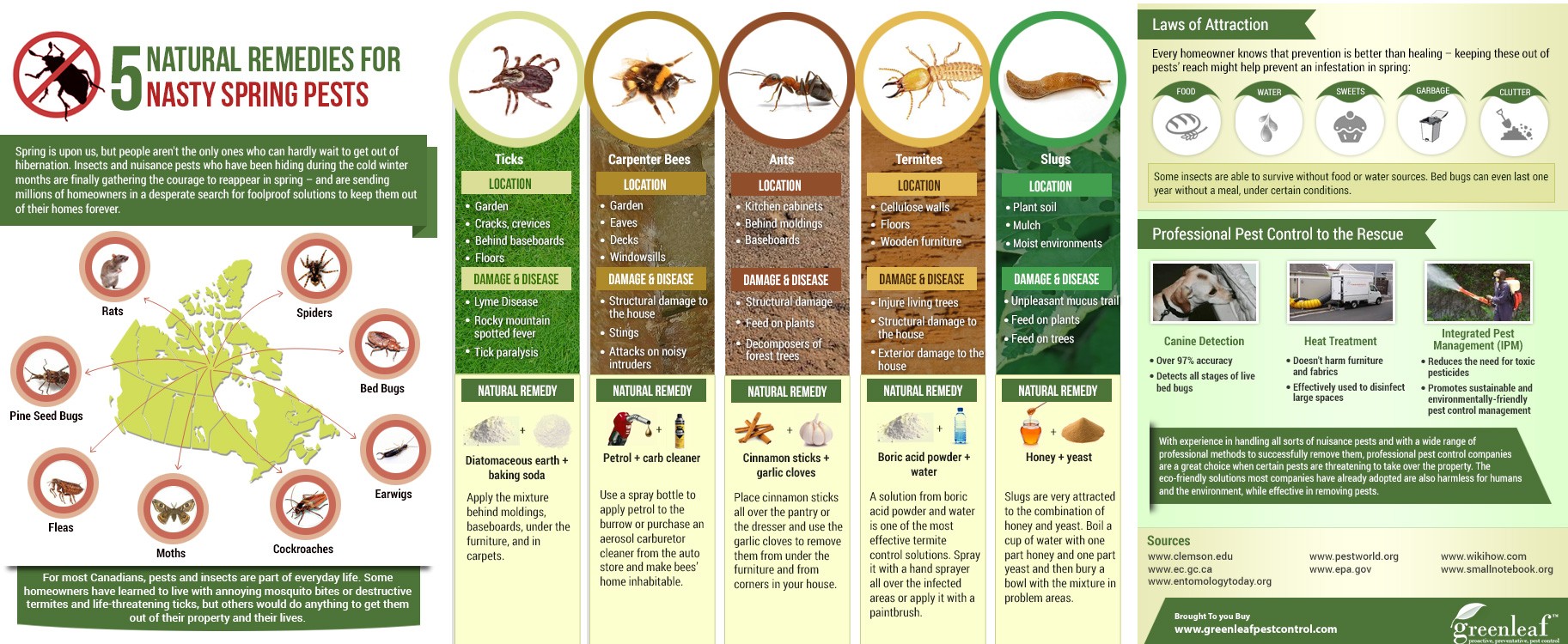Exploring Advanced Methods Employed By Bug Management Professionals
Exploring Advanced Methods Employed By Bug Management Professionals
Blog Article
Authored By-Winther Paaske
Are you tired of counting entirely on sprays to handle parasites in your house or workplace? While sprays can be effective, pest control professionals have actually established sophisticated strategies that go beyond simply splashing chemicals.
These strategies not just offer much more effective and long-lasting services, but also focus on minimizing the use of unsafe pesticides. By checking out these sophisticated strategies, you will find an entire new world of insect control approaches that are not just effective, but likewise eco-friendly.
So, are you prepared to take your bug control game to the following degree?
Integrated Bug Management (IPM)
If you're seeking an effective and environmentally-friendly approach to pest control, Integrated Parasite Management (IPM) is the solution you require. IPM concentrates on long-lasting prevention and administration of parasites, as opposed to merely relying on pesticides. This method takes into consideration the certain demands and actions of insects, along with the surrounding setting.
By utilizing a combination of strategies such as organic control, environment manipulation, and targeted chemical usage, IPM intends to lower the reliance on chemical therapies and minimize injury to non-target microorganisms.
One key element of IPM is monitoring and recognizing bugs precisely. This includes regularly checking and assessing the pest populace, as well as determining the certain varieties existing. By understanding the biology and behavior of insects, insect control experts can establish targeted techniques to interrupt their life process and reduce their numbers.
One more crucial aspect of IPM is making use of non-chemical control approaches whenever feasible. This can consist of physical barriers, such as setting up displays or securing splits and openings, to stop bugs from going into buildings. Additionally, cultural practices, like correct sanitation and waste monitoring, can aid eliminate insect food sources and breeding premises.
When simply click the following page are needed, IPM focuses on using them sensibly and as a last resort. This implies picking the least hazardous and most efficient option, using it precisely and only to impacted areas, and following all security standards. By decreasing best indoor ant killer , IPM lowers the possible threats to human health and wellness and the setting.
Biological Control
To additionally improve the efficiency of Integrated Insect Administration (IPM), the following subtopic we'll check out is the method of organic control. This method makes use of all-natural predators or parasites to control pests.
Below are 4 key elements of biological control:.
1. Introduction of natural enemies: In this technique, beneficial insects or organisms are presented to the location plagued with pests. These all-natural adversaries prey on the parasites, aiding to minimize their populace.
2. Preservation of all-natural opponents: Instead of introducing new organisms, this technique concentrates on creating a suitable atmosphere for existing useful bugs. This can be attained through providing food, sanctuary, and water sources.
3. Augmentation: Here, the number of natural enemies is enhanced synthetically by reproducing and launching them right into the ravaged location. This helps to swiftly reduce the pest populace.
4. Push-pull approach: This strategy incorporates repellents and attractants to adjust the habits of parasites. Repellents push parasites away from crops, while attractants draw them in the direction of catch crops or locations where they can be conveniently regulated.
Environment Modification
Environment alteration plays an important duty in bug control by altering the environment to prevent insect invasions. By making changes to the physical characteristics of a room, you can develop an unwelcoming atmosphere for pests, making it harder for them to make it through and thrive.
One usual approach of environment alteration is eliminating or lowering possible food resources for pests. This can include proper waste administration, securing containers, and cleaning up food crumbs.
In addition, eliminating or decreasing locations of standing water can assist control insects like mosquitoes.
Altering the landscape by cutting trees and shrubs far from buildings can additionally stop insects from accessing your building.
Conclusion.
So there you have it - the innovative techniques utilized by insect control specialists surpass just splashing chemicals. Integrated Insect Administration (IPM) incorporates numerous techniques to successfully manage insects, while biological control takes advantage of natural opponents to keep insect populations in check.
Environment modification also plays a critical role in avoiding parasite infestations.
Did you know that according to a study, applying IPM techniques reduced pesticide use by approximately 71%? This not only shields our health and the setting however also saves cash in the future.
